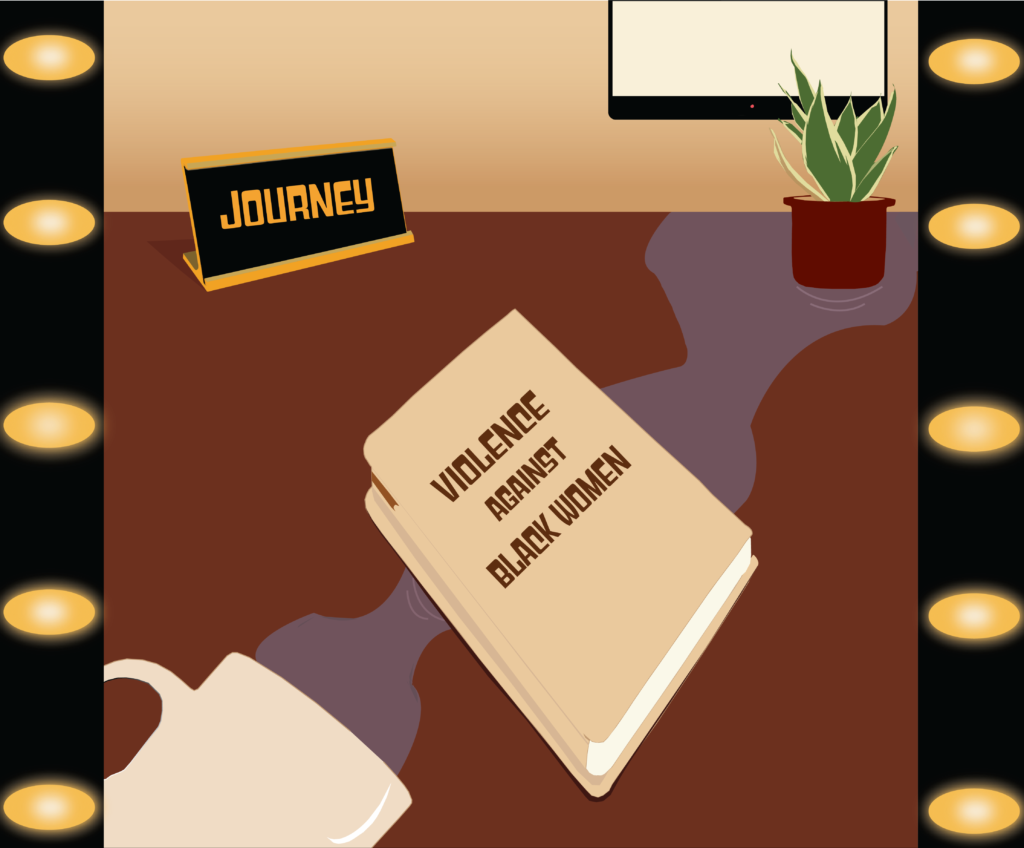Culture | September 28th, 2021
Coercive Violence Against Black Women is Glorified In The Media
By: Zion Lampley

In America where 45% of Black women experience intimate partner violence, we have fostered a culture that has normalized the violence against Black women in relationships. As Black women are socialized from birth to step into caretaking roles, practices of abuse against Black women often go unnoticed.
The “ride or die” trope glorifies women who defy any odds and break traditional partner roles to support every decision their partner makes. While feigning for a “ride or die” is a norm for modern relationships, the belief that Black women are resilient beyond any breaking point stems from American chattel slavery. Black women have long carried an invisible armor of violent microaggressions while dealing with the harsh reality of oppression. In addition to facing incomparable rates of violence, society has labeled Black women as the “backbone” of our American democracy.
Dr. Seanna Leath, an assistant professor at the University of Virginia, believes that there are different forms of violence historically perpetrated against Black women. “We can trace it back to Black women as people, who aren’t valued in the same ways as white women,” Leath said. “This notion of coercive violence stems down to this idea of us being less valuable and people not caring as much.”
Under the guise of being a “partner in crime,” the idea that withstanding chaos in the name of love has plagued hip-hop culture and other media mediums. Earlier this year, Chicago rapper Lil Durk, real name Durk Derrick, and his girlfriend India Cox were involved in a shootout with home invaders in their Georgia residence. Much of the dialogue surrounding the life-threatening situation romanticized how Cox seemingly risked her life in the vein of love and blatantly exploited the invasion as an act of sacrifice.
As romantic relationships grow older in years, reluctance to report violence while living a troubling lifestyle has become the norm for Black women. Corruption, doubt, and the possibility of leaving their spouse for good is a hard cycle to break, especially when longevity is involved.
Trenece Robertson, a sophomore sociology student at Florida A&M University, notices that the depictions of coercive violence in heteronormative relationships can be driven by how Black couples see popular culture and depictions in movies such as “Queen and Slim.” “You don’t want to ride and you don’t want to die,” said Robertson.
Black women are not emotional landfills yet Black women are often entrapped in relationships where they are asked to make the ultimate sacrifice in the name of love. For Black Television shows like “Snowfall” and “Empire” have put Black women at the forefront of violence. In particular, “Snowfall” — a television series that centers the impact of the first crack epidemic — features Black female characters whose lifestyles are influenced by their spouses. Throughout the show, Louie, Khadijah, and Cissy are introduced to gang activity and exposed to drug distribution, choosing the protect their spouses from accepting full accountability.
Felisiana Torres, a fourth-year psychology student at FAMU, feels as though consistent violence against Black women has been ingrained in our culture. “It has been happening for many years, and nobody is here to change it, and Black women are left to suffer,” Torres said. She notes that the way these situations are depicted in television seems as if filmmakers are asking “How can we portray violence in the worst way, definitely trauma porn?”






